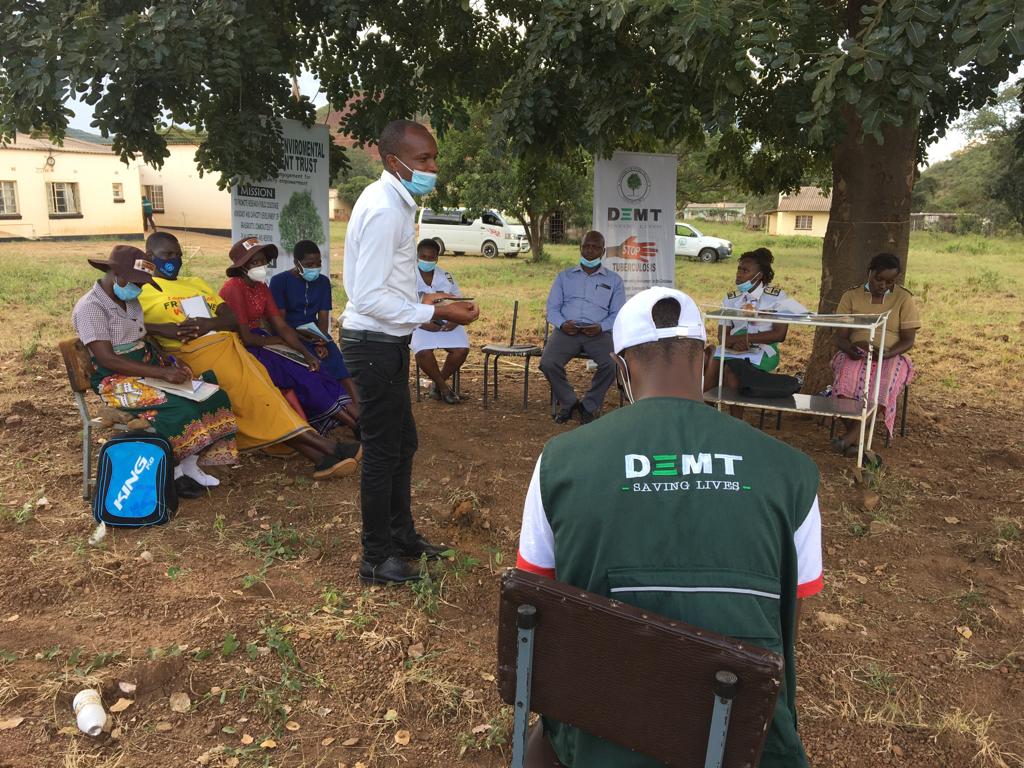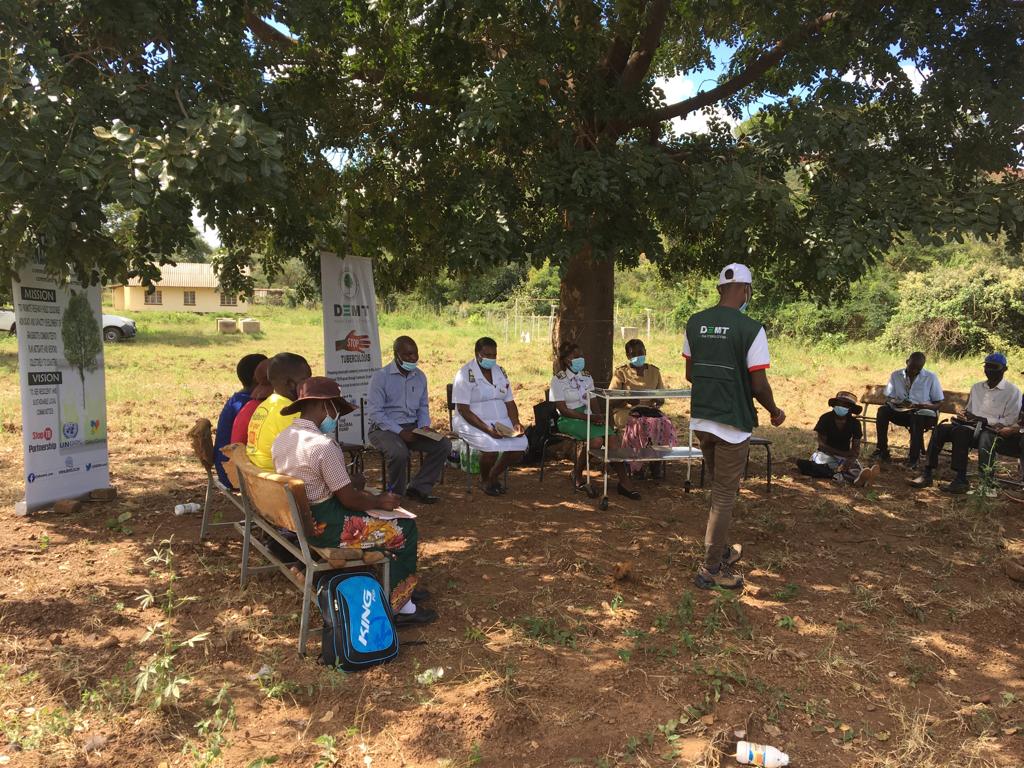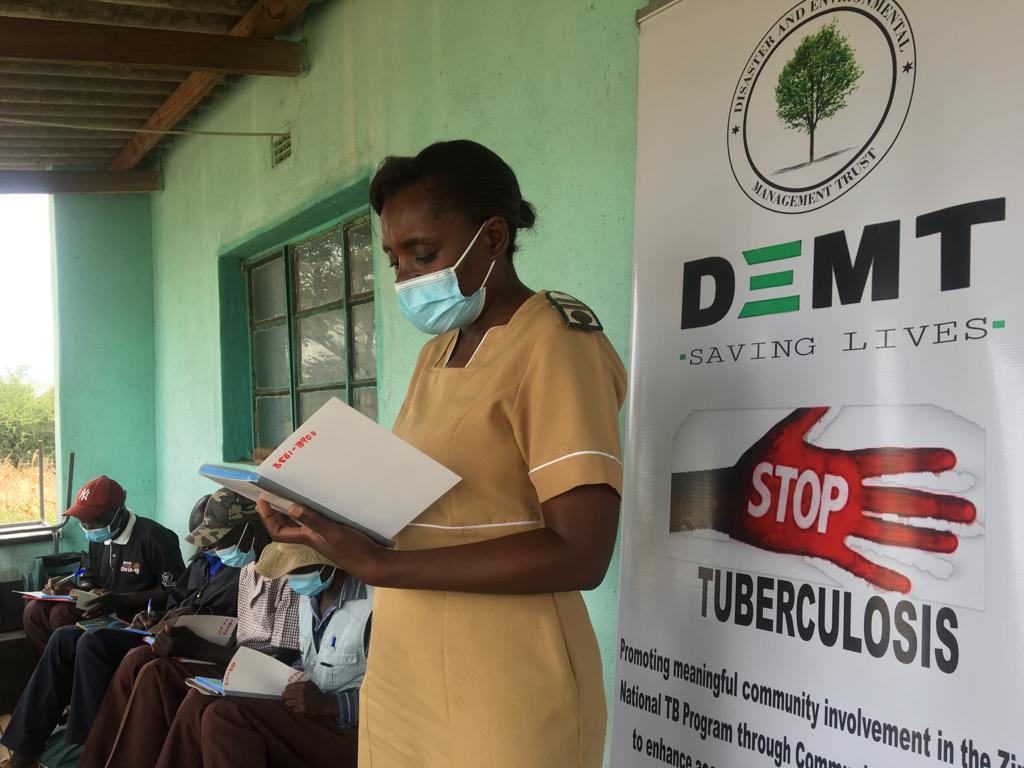The Disaster and Environmental Management Trust (DEMT) with support from the Stop TB Partnership and UNOPS has trained 150 village health workers in Mutoko and Mudzi districts of Zimbabwe in a bid to screen high risk clinical groups for TB.
Tuberculosis is one of the leading causes of death in Zimbabwe. The African region has the second-highest tuberculosis burden worldwide, after Southeast Asia. Under the WHO End Tuberculosis Strategy, countries should aim to reduce tuberculosis cases by 80 percent and cut deaths by 90 percent by 2030 compared with 2015.

Multidrug-resistant tuberculosis, however, remains a major public health problem. Globally, over 150 000 cases of the resistant strain were detected in 2020. In Zimbabwe, 245 cases were recorded in 2021; a slight increase from the 227 recorded the year before.
Speaking to the Daily News, DEMT Head of Programmes, Romeo Chingezi said the training is part of the broader efforts to meaningfully involve communities in active TB case finding.
“Through meaningful community involvement the organisation hopes to contribute towards closing the 28 percent TB case detection gap in Zimbabwe,” said Chingezi.
“The trained village health workers are also going to monitor the availability and accessibility of TB services at rural health facilities in their areas, documenting gaps and discrepancies against government standards and advice service providers for informed decision making.
“As a country our efforts and focus on the COVID-19 pandemic which took the globe by storm should not make Zimbabwe ignore the fact that TB still remains a major public health threat. As a nation we need to expand and accelerate our interventions especially in rural communities which is still our challenge,” said Chingezi.
He added that Zimbabwe and supporting partners should double the support to raise awareness on TB, enhance the community and health system capacities for TB so that the country remain on track to reduce morbidity and mortality from this disease for our population and honour commitments to help achieve the United Nations High Level Meeting target.

Since 2020, DEMT has been contributing to the global goal of ending TB in collaboration with health facilities, affected communities and TB survivors
Disaster and Environmental Management Trust (DEMT) is a registered non-governmental and apolitical organization whose interventions are predominantly focused on the grassroots community.
The organisation operates in Mutoko rural district working in partnership with the local authority and it maintains a permanent presence in the district regardless of having running funded projects.
Its mission is to provide relief and promote recovery of disaster affected and vulnerable groups through development projects that are meant to wipe out poverty and promote self-sustenance.
The organization is a member of the Mutoko District Food and Nutrition Security Committee (DFNSC) and it is also an active member of the Zimbabwe Civil Society Organizations for Scaling Up Nutrition Alliance (ZCSOSUNA) which is an alliance of over 119 local and international NGOs implementing nutrition specific and nutrition sensitive interventions.
DEMT aims to be the leading local development actor in improving rural livelihoods and food production, promoting low cost technologies and promoting recovery of disaster affected demographics.




